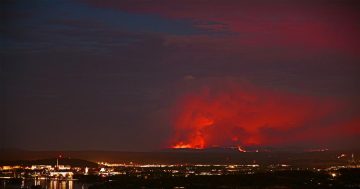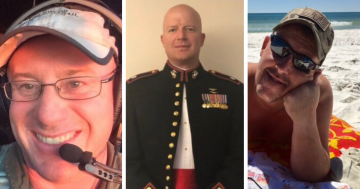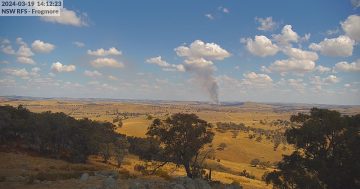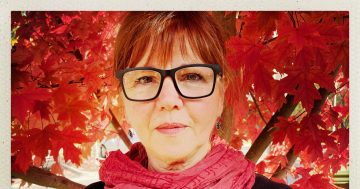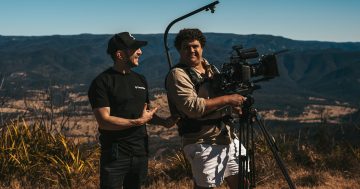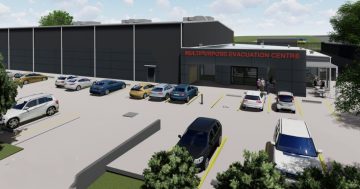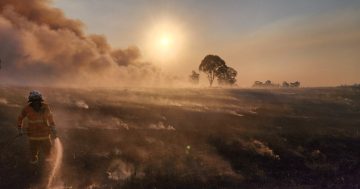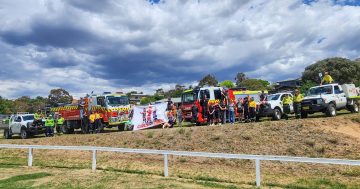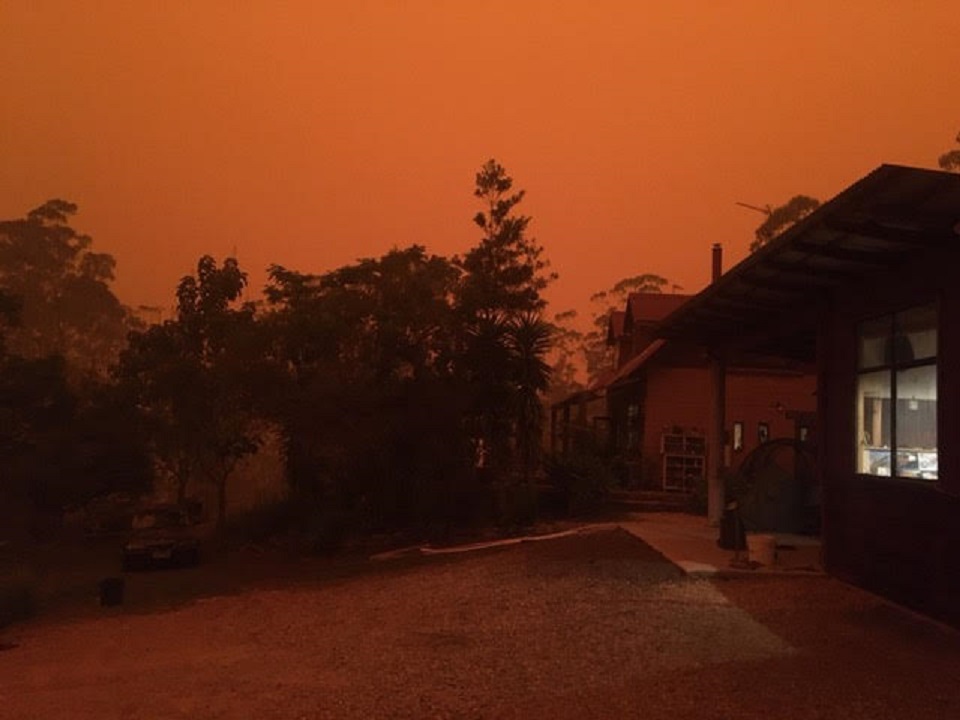
The smoke from the bushfires darkened the sky over a home on the Far South Coast on New Year’s Eve 2019. Photo: Jo Dodd.
While the state coroner made nearly 30 recommendations when she handed down her report into the two-year-long inquiry on the Black Summer bushfires, they have been met with mixed reactions from community organisations.
NSW Coroner Teresa O’Sullivan released her findings on the the Black Summer bushfires inquiry, saying the fires killed 25 people in 2019-2020 and were “without doubt one of the most catastrophic on record”.
Of her 28 recommendations, 25 were directed at the NSW Rural Fire Service (RFS).
“Obviously, they are going to take some time to work through to understand what that means, what it involves to implement the recommendations, and indeed we’ll be talking to government about those recommendations,” RFS Commissioner Rob Rogers said.
However, according to the Independent Bushfire Group (IBG), there has still been no comprehensive and expert review of NSW’s worst fire season.
“We live in a worsening fire climate. Overall, the disaster-inquiry-disaster cycle is a broken model and does not deliver on the operational lessons needed for next time,” IBG Convenor Geoffrey Luscombe said.
“NSW needs an ongoing and independent capability for reviewing and improving disaster operations, like the inspectors general of emergency management that Victoria and Queensland created a decade ago.”
Mr Luscombe said the coronial inquest could only act within its jurisdiction on 41 fires out of the thousands of incidents. This meant it could “only scratch the surface of firefighting operations”.
“Vital insights for improving bushfire operations are still missing. Many tactics and strategies worked well but without proper reviews and publishing the lessons learned, firefighters are not getting the most out of what could be an open learning process,” he said.
Bushfire Survivors for Climate Action CEO Serena Joyner said the coroner had made “solid” recommendations that could lead to communities becoming safer if implemented properly, although none addressed climate change, which was something that could have “beefed up” the recommendations.
She said climate change was worsening and called for state and federal governments to take it seriously. For instance, she said it was “unacceptable” that the federal government was currently writing environmental laws and was not considering the climate impacts of new projects under the current proposals.
“If we keep seeing new projects that ramp emissions, we are pouring fuel on the fire,” Ms Joyner said.
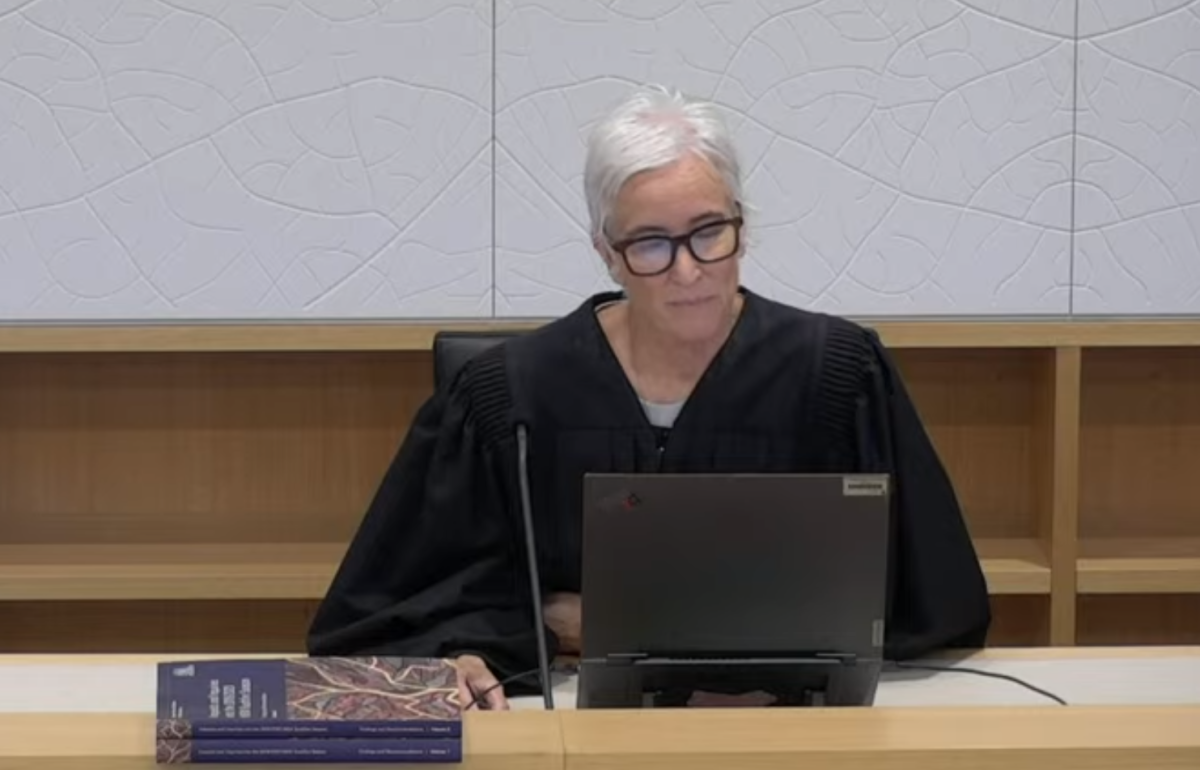
NSW Coroner Teresa O’Sullivan released her findings from the lengthy Black Summer bushfire inquiry last week. Photo: Screenshot.
Commissioner Rogers was asked whether he would support an independent body assessing what went wrong during the disaster, as some Black Summer survivors felt the coroner’s recommendations would not make a difference and asked for such a body.
But the commissioner said NSW had seen “so many” inquiries into fires over the past 20 years, from parliamentary inquiries and a royal commission to “numerous” coronial inquiries.
“To be honest, I can’t understand how we’ve had so many reviews, but it seems that it’s more about people just didn’t get the result they want so they just simply want to try and throw another thing in there,” he said.
“At the end of the day, no, I think there’s plenty of scrutiny, independent review, over the RFS and over the activities of firefighting. I’ve got to say, I think we’re one of the most inquired-into agencies anywhere in this state.”
Commissioner Rogers accepted communication could “absolutely” be improved within the RFS.
“But I would say that against the backdrop of more than 11,000 fires we were dealing with over that season,” he said.
He said it was important to note the improvements since the fires, such as extra safety equipment given to firefighters, a new generation of firetrucks designed by Monash University, improving the current trucks, as well as technological improvements for areas like aviation.
Some of Coroner O’Sullivan’s recommendations include that the RFS should conduct training simulations for officers of potential situations where aerial firefighting aircraft would need to be dispatched and should review its standard operating procedure for when a suspected breach of containment lines had occurred due to wildfire.
Training development for public liaison officers and incident controllers has been recommended to address the significance of early warning to communities with limited access to reliable systems.
A further recommendation was for the RFS to continue working with the Bureau of Meteorology to better understand the interrelationship between atmospheric instability and bushfire.
Original Article published by Albert McKnight on About Regional.



